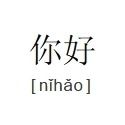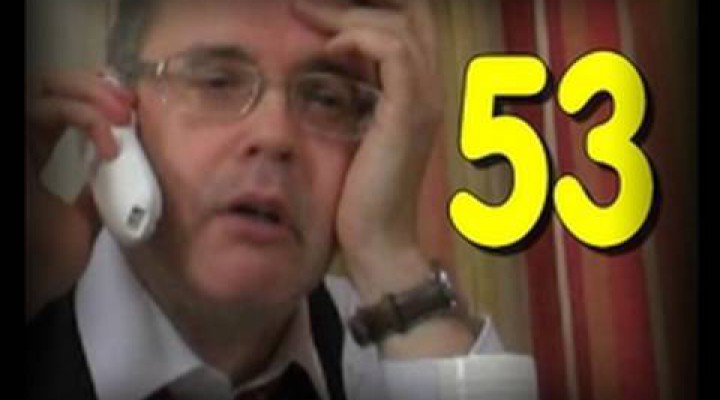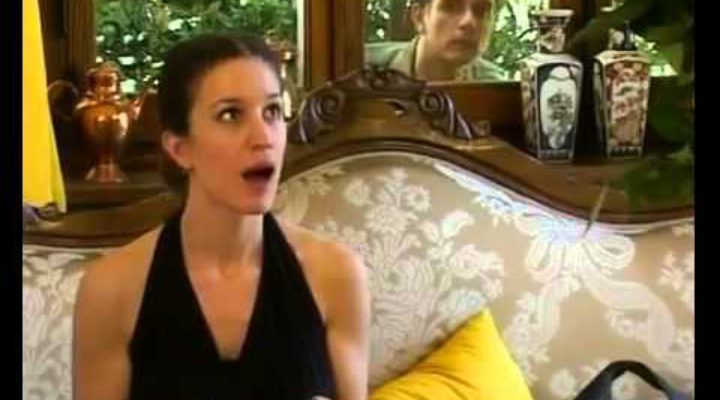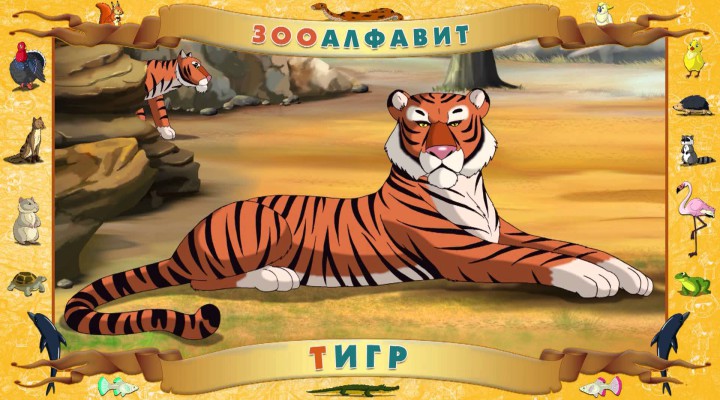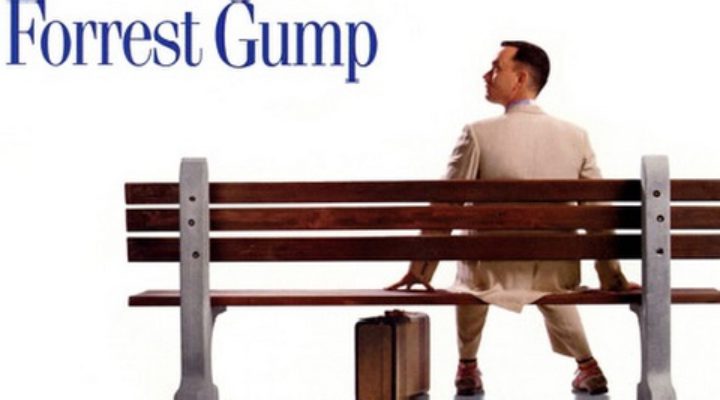English today DVD7 Easy English for you.
____________________________________________________
Hello! And welcome back to ‘English today’. And this is DVD seven and the third DVD in your elementary level. And in this DVD you will see another two episodes of our story ‘That’s life!’ followed by our special TV programmes. In the cinema programme they will be talking about the Sundance film festival followed by a debate about e-learning. Then, in the grammar section, we will study more about adjectives, in particular the comparatives and the superlatives.
So happy studying!
_____________________________________________________
-Well guys, why don’t we go to the cinema tonight?
-That’s a great idea. What’s on?
-Well, there’s the new film with Schwarzenegger.
-That should be good.
-You’re joking, right?
-No, I’m not. What would you suggest?
-How about going to the disco?
-The disco? Are you crazy, Alice? That’s not even music… That’s simply noise!
-Come on, Peter! It’s Saturday night, we have to do something special… Something exciting! And going dancing is syrely more exciting than going to the cinema!
-I agree with Alice! Let’s go dancing! Uch, uch, uch…
-What about a third choice?
-I guess Anne is right! Why don’t we try to find a good compromise?
-Come on, guys! How boring and old-fashioned you are!
-… And you are more frivolous than I am, Alice!
-Come on guys! Don’t argue now, please! Let’s vote on it! Wellm Alice and I want to go dancing, Peter and Anne don’t… How about you, Sharon?
-I don’t know… Well… The disco is probably more entertaining than the cinema…
-Great! Okay, guys. Three against two… Let’s go dancing!
____________________________________________________
Hello and welcome back to ‘English 2day’ for some more English. Now… What would you prefer? Discotheque or cinema? Dancing or a film? Well we are going to look at comparatives now.
I have to buy a camera, and I need to choose one, I have to make a choice so I have to compare two different types, here I have two types, look, this one here and this one here. Now, they are quite different.
Listen to the language I use when I compare them, Okay?
Now this camera is smaller than this one. This is really quite big, it’s bigger than this. And it’s also heavier, this camera, than this one. This is a light camera so it’s lighter than this model.
Now this model looks more sophisticated and probably more artistic than this one, whereas this one looks more practical, but maybe less complicated, what do you think?
And what else? Well this is definitely more expensive then this one, this is probaly cheaper, I think. Because this has a big lens as well. So, I’m not sure, what do you think?
I like the idea of a more sophisticated camera… but I think it’s more expensive so… I think I’ll have to go for the cheaper one which is the digital one, I think I’ll choose this. Alright? Good, now let’s go and have a look at the language and see how we formulate comparatives in English, alright?
if you have a one syllable word, you remember one syllable words like cheap, small, hot, high, then to make the comparative it’s easy, we add E-R to the adjective, so ‘cheap’ becomes ‘cheaper’, ‘small’ becomes ‘smaller’, ‘hot’ becomes ‘hotter’, notice we double the T, ‘high’ becomes ‘higher’.
So, some examples are: ‘the new model is lighter than the old model’, or ‘London is safer than New York’, ‘Today is hotter than yesterday’, alright? So, those are adjectives with one syllable. But what happens if you have adjectives with three syllables or more?
Look at the examples.
‘Interesting’ is an adjective with three syllables ‘in’ ‘te’ ‘res’ ‘ting’, no! Four syllables! So it becomes ‘more interesting’, you see what happens? We put ‘more’ in front of the adjective, so ‘more interesting’. ‘Difficult’, how many syllables? ‘Difficult’: ‘dif’ ‘fi’ ‘cult’?Okay, so it becomes ‘more difficult’.
Therefore, the example we have next is: ‘the new model is more practical’, or ‘london is more expensive than Madrid’. For example ‘This test is more difficult than the last test’.
So you see how we formulate the comparative depends on the adjective that we use: if it’s a one syllable adjective we add E-R, cheap — chaper; if it’s three syllables or more we add ‘more’ in front of the adjective, like ‘more difficult’, okay?
Now, we are going to go back to ‘That’s life!’ where the girls are getting ready to go dancing… They use a lot of comparatives in the conversation, listen carefully and try and recognize them. Okay? Great! See you next time! Bye!
__________________________________________________________
-Here’s my party-hat. How do you like it?
-You look great! I envy you. Hats really suit you.
-Well, I envy your room, Anne.
-But with all this traffic how do you sleep?
-Oh, I’m used to it!
-Which disco are we going to?
-‘Paradise’. It’s a new disco on King’s Road… It’s very nice!
-Did Tom and you go there together?
-Yes, we went last Saturday… We spent a nice night together…
-Maybe I asked the wrong question. You don’t like Tom, do you?
-He’s boring, very boring… Besides he’s an ARIES! And he talks too much… Last night, for example, he showed me all the pictures of his holiday in the Alps. He talked for an hour about the mountains… But I hate the mountains!
-Why do you say that? The mountains are beautiful and spectacular.
-I prefer the beach… It’s more relaxing and rntertaining!
-Oh, I don’t know. I think the beach is more boring than the mountains.
-Whay do you say that?
-Well, think about it. Lying on the beach every day. It’s much more interesting to be walking in the countryside.
-Yes, but it’s usually colder in the mountains. I think the beach is also more romantic.
-Girls! Stop talking nonsense! How do I look?
-You look very pretty, Alice!
-Thanks Sharon. But you look better than me.
-No, how can you say that? You’re much more tanned than I am.
-Yes, but you are in better shape.
-And me? How do I look?
-You are very pretty too, Anne.
-I’m sure I’m not nearly as beautiful as you!
-Come on, guys! Stop making stupid comparisons! Let’s just say that we’re all different…
-Hey girls! Okay, are you ready? I need your advice… Which shirt is better according to you?
-The red one! It’s much better than the blue one for a disco-night.
-And you, Sharon? What do you think?
-Well, I think the red one is funnier, while the blue one is more professional… I prefer the blue one.
-So, girls, which shirt should I put on?
-I told you, the red one.
-With that one on you’ll look more macho!
-Yes, macho, that’s the right word!
-Really? Macho? I like it!
-Okay, I’ll put on the red shirt! Do you agree with Alice, Sharon? About being macho, I mean…
-Come on, Jack! It’s late… The disco is waiting for us!
_________________________________________________________
Hello again and welcome back! I want to continue talking about comparatives in this lesson, because last time we talked about how we compare with adjectives with one syllable and three syllables and more. Remember we said ‘hotter than…’, but ‘more dufficult than’. So what happens if we have adjectives with only two syllables? For example like ‘heavy’ or ‘easy’, well, we say ‘heavier’ and easier’ but the spelling changes, and that’s what I want to show you on the screen now because … the Y at the end of ‘easy’ and ‘heavy’ disappears, look.
‘Happy’ is an example with… an adjective with two syllables ending in Y, ‘happy’ becomes ‘happier’, take out the Y, put in I… I-E-R, okay? Then ‘funny’ ‘funnier’, and ‘easy’ as we said before ‘easier’, ‘heavy’ again, another example, ‘heavier’. ok, so be careful, remember that the Y becomes an I. Some examples: ‘I’m happier than you’, ‘his joke was funnier than mine’, ‘English is easier than Russian.’ Alright? So, that’s important to remember, but that’s not all. There are some real exceptions, as always, in the English language, also in the comparative form, and that’s what I want to look at with you now. it’s very important. The question is: what is the comparative of ‘good’? The comparative is completely different, it’s ‘better’. So you would say ‘This camera is better than that camera’ alright? So ‘good’ becomes’ better. What about ‘bad’? Again, it’s completely different, ‘bad’ becomes’ ‘worse’. Today’s weather is worse than yesterday’s. ok? ‘Bad’ ‘worse’. And one more example ‘far’ , which means distance, ‘far’ becomes ‘further’ or even ‘farther’, both possibilities. Father written F-A-R-T-H-E-R, as you can see on the screen, alright? So those are the big exceptions: ‘good’ becomes ‘ better’, ‘bad’ becomes ‘worse’, ‘far’ becomes ‘farther’ or ‘further’, you choose.
Examples: ‘walking is better than running’, ‘today the weather is worse than yesterday’ and ‘Southampton is further than Brighton’. Alright? So those are all the most important things that you need to know when you are comparing things, don’t forget the exceptions, they’re very, very common and easy to forget. Alright? Great! So I’ll see you next lesson when, no doubt, you’ll be speaking English better. Ok? See you then, bye!
____________________________________________________
-So, Tom… Which do you think is the best?
-I think Prague is the most interesting.
-Are you sure? I think Vienna is more exciting than Prague.
-Yes, but it’s certainly the most expensive tour.
-It doesn’t matter… My father is going to pay for everything! And what about Madrid? I think it’s probably the most exciting…
-Why do you say that?
-Well… The night-life… I’m sure there are a lot of discos.
-That’s true, but it’s certainly the hottest city.
-You’re a good friend, Tom, but… You’re so boring! I don’t really care about the weather … I just want to enjoy myself! This trip is my father’s birthday present to me. I want to go to Europe’s most interesting city, but also to the most special and the most entertaining one!
-I see… Well, I think all three are interesting cities!
-Hi guys, what are you doing?
-My father is going to give me a trip for my birthday. So I’m coosing where I would like to go…
-Oh, really? That’s great! Are you going alone?
-No,, my father promised to come with me…
-Well, do you already have an idea of where you want to go?
-Not yet! I can’t make up my mind between Vienna, Prague and Madrid… Tom was making some ‘precious’ suggestions…
-But she isn’t taking my advice… As usual!
-Well, I think Prague is probably the oldest city, but Vienna is the most interesting one. There are a lot of important meetings in Vienna, and lots of museums, too.
-Well, Madrid also has a lot of museums. Do you agree with that?
-Yes, that’s true… But madrid is certainly the hottest city!
-Oh my God, Anne! You are like Tom! You both talk nonsense! I think you two should go out together… I think you would get on well…
-Alice, what are you talking about? You’re joking, right?
-Well, not really! I think Tom is perfect for you, Anne…
-Come on, Alice! Stop being foolish… You are embarrassing us!
-Really? There is no need to be ashamed! listen, I’m going to leave you two alone, now! So you can get to know each other better…Bye!
_________________________________________________________________
Hello again! Now, that’s an interesting couple. Tom, who is an obsessive museum-goer, Anne, who is an obsessive cleaner… put them together… and what have you got? The cleanest museum in the world! Now, ‘the cleanest’ ia an example of the grammar form of the superlative. And that’s what I want to look at with you now, I want to give you some examples, so, listen carefully to what I say, alright? Good, so…
Good morning ladies and gentlemen! Are you having problems opening your bottles? Well, I have the solution for you, here it is, a revolutionary bottle opener, this is a bottle opener. Have you been using these old models like this and being having problems? Well, this is the most intelligent and the most revolutionary bottle, that you can find, bottle opener it’s called, ok? So, how does it work? You take your bottle of wine, you open it up like this, you open it here, you put it on the top of the bottle like that, over the cork, then in this position, you see? Hold it strong. Take the lever like this and pull over like that. Okay? It takes a little bit of effort but not like that one. Then you push it back and what happens? Bingo! Out comes the cork, then the same action, hold it tight, pull it over, the cork comes out and we are ready to drink. This is, ladies and gentemen, the most effective, the newest, the quickest, the smartest, and the most revolutionary bottle opener that you will ever find and it’s the most economical, it’s the chapest, it only costs twenty euro, for you. So buy one today and let’s pour some wine and toast to the most superlative bottle opener in the world… cheers!
Uhm, that’s nice! Great!
That was the superlative, let’s go and see it on the screen. Uhm… nice wine!
now, when you have an adjective with one syllable like cheap, what we do is we add ‘the’ at the beginning to make it superlative and then we add E-S-T to the adjective. Look at the examples:
-it’s the cheapest;
-it’s the newest;
-it’s the quickest;
-it’s the smartest bottle-opener in the world;
Okay? So ‘the’ plus E-S-T at the end.
Now if the adjective is two or three or more syllables it changes, as I said, and it becomes ‘the most effective’. Now, the adjective doesn’t change, but in front of it we put ‘the most’.
The most effective, it’s the most economical bottle opener, it’s the most beautiful, it’s the most revolutionary bottle-opener, okay? So again, be careful. Is it a one syllable adjeective? Is it a two or three or four syllable adjective? Because it changes. Great! Now let’s go back to life, ‘That’s life!’ where jack and Peter are talking about football, they’re talking about the best football team in the world. Okay! And I’ll see you later! Cheers!
_______________________________________________________________
-Hey, Peter… Did you see the match yesterday evening?
-Which match?
-Which match? Ajax vs. Juventus.
-Those teams are boring…
-Excuse me, excuse me! Ajax is the best football club in the world!
-I’m afraid I don’t have a clue.
-I know that only music matters…
-Anyway… In your opinion… Which is the best team?
-I don’t know! I heard Arsenal is the best one of all time. They’ve got the most aggressive players, the most important coach, the toughest goalkeeper.
-Peter, Peter… You are so mistaken!
-Okay, what’s so great about Ajax?
-First of all, their defence is superb.
-It’s much more intelligent than Arsenal’s. Still…
-No.. But you promised to me! You’re always busy!
-No, I don’t want to go anymore! Anyway, thanks daddy!
-Thanks for your present! You’re the worst father in the world!
-Don’t worry, i’m gonna have a great birthday, all the same!.. yes, with my friends… They do love me! Bye!
-Is everything okay, Alice?
-No, nothing is okay! My father keeps on being the same…
-Come on, Alice! Don’t cry, please! Tell us what happened!
-Well, you know… I told you… my father decided to give me a trip for my birthday… Well, he promised to come with me… And just now he told me that he can’t anymore… Because he has some important work to do… As usual!
-Don’t be angry with him! Even if he has some important to do you can leave for your trip anyway!
-No, I don’t want to go anymore! Well, don’t worry Alice! We are going to give a big party for you, isn’t that true, guys?
-Absolutely!
-Of course!
-You are the most brilliant, the smartest and the funniest roommate we’ve ever had! Even if sometimes you are a bit lazy… You need a special party!
-Thanks a lot! You are the best friends in the world…
__________________________________________________
Hello again. Now you know Mr. monkey reminds me of Jack. He’s obsessed with football, but he’s very sweet. Did you hear what he said to Alice? He said ‘you’re the most brilliant roommate we’ve ever had’. That’s really sweet. And did you hear them talking about football? Well i don’t know what you thought … they said, this was Jack, he said ‘Ajax is the best football team in the world’.
Debatable? Alice said her father was the worst father, and Jack then said ‘you’re the funniest roommate that I have ever had’. And so these are all examples of exceptions in the superlative form. I want to go to the screen now and look at those because they’re not that easy. So, look at thefirst example, with adjectives ending in Y, we remove the Y, as we’ve learned before, and we add I-E-S-T.
So, ‘funny’ becomes ‘the funniest’, ‘easy’ bexcomes ‘the easiest’. So the examples are: ‘You’re the funniest roommate, I have ever had’, for example…or ‘Naples is the noisiest city in Italy’, or ‘it’s the happiest day’.
Alright, so, those are two syllables adjectives ending in Y…
Now look at the exceptions, remember we have already learned that ‘good’, ‘bad’ and ‘far’, are exceptions in the comparative, now look at the superlative: ‘good’ in the superlative becomes ‘the best’. So it’s good, better, the best. ‘Bad’ in the comparative is ‘worse’, remember? The superlative is ‘the worst’. Notice the T. Bad, worse, the worst, don’t forget to pronounce the T.
And then ‘far’: the comparative we said was ‘farther’ or ‘further’ and the superlative form is ‘the farthest’ or ‘the furthest’. OK? So, those are the three most important exceptions, you need to learn those by heart, because words like ‘good’ and ‘bad’ we use every day, so try and memorize them alright? And I’ll see you in the next lesson, bye.
Good morning, good morning! Welcome to this week’s edition of ‘talk Cinema’. Here in the studio with me is Sanjeev Gupta, our cinema expert.
-Good morning Sanjeev.
-Good morning.
-Well Sanjeev, what are you talking about today?
-Today I want to talk about the Sundance film festival!
-Sounds interesting! I’ve heard of the Sundance festival, what exactly is it?
-Well, to put it simply Sundance is a festival for independant films and people interested in them.
-OK, can you explain what an independent film is?
-Independant films, sometimes they’re called ‘indies’, are films that don’t come from the major Hollywood studios. They’re produced and financed by the directors themselves and they’re usually low-budget productions. But, of course this doesn’t mean that they’re appreciated less than normal commercial films.
-Of course! Independent films can be very interesting and often they deal with contemporary issues.
-Exactly! We can’t compare independent films with Hollywood blockbusters! They’re two completely different things! Well, Hollywood films are more spectacular. They’re usually high-budget productions and the money comes from the Hollywood studios, not from the directors! There’s more money to spend so they can feature famous stars.
-There’s another important difference here: Hollywood movies are distributed throughout the world. That’s how they make so much money at the box office! Right Sanjeev?
-Right, Lucy! On the othe hand, independent films generally win the praise of cinema critics but make less money at the box office.
-Ok, let’s go back to the Sundance film festival!
-Well, this festival has nothing in common with the Oscars night in Los Angeles! But it is the most important film festival in the world for independent films. it’s important because it promotes the work of many young directors.
-When did the festival start?
-Robert Redford organised the first festival 25 years ago. The festival takes it’s name from ‘Sundance Kid, the character Robert Redford plays in the film ‘Butch Cassidy and the Sundance Kid’. Today the Sundance is devided into two sections. The main section is called ‘The American Competition’ and is for American films and documentaries. The second section is the ‘World Cinema Competition’ this is for all other films. You know Sundance is great fun. In addition to the films there are parties and concerts and also special meetings for film students.
-Well, the Sundance festival sounds fun… It’s smaller and younger than other film festivals. There aren’t lots of Hollywood stars… The awards aren’t as prestigious as the Oscars. But it’s an important festival! Right Sanjeev?
-Right! And don’t forget it’s great fun.
-OK, thank you Sanjeev, and goodbye.
-Goodbye.
Goodbye and see you next week for another edition of ‘Talk Cinema’!
So the Sundance festival takes its name from the Sundance Kid the character that Robert Redford plays. A character is a person in a film. And we say that an actor plays a character. And let’s have a look at some of the vocabulary and expressions we use to talk about films. There are independent films and Hollywood blockbusters. First of all, what is an independent film? It’a a low-budget production that is not produced or financed by a major Hollywood studio. Major means big and important. A low-budget production is a film made with little money. And what’s a Hollywood blockbuster? It’s a high-budget production that is produced and financed by a major Hollywood studio. A high-budget production is a film made with lots of money. To produce a film means to make a film and to finance a film means to find the money to make a film. We say a film is produced by and financed by someone. So, an independent film is usually produced and financed by the director of the film. The director is a person responsible for making a film: he or she directs the actors and decides how to tell the story of the film. Independent films are sometimes called ‘indies’ which comes from the word ‘independent’. Because Hollywood blockbusters are high-budget productions they can feature famous stars. Famous stars are famous actors. So if a film features famous stars it means that famous actors and actresses are in the film. ‘Pretty Woman’ features Julia Roberts and Richard Gere.
We say Hollywood blockbusters are commercial films. This means they are easy to watch and easy to sell. They are made with the purpose of making money. Alright cinema lovers, that’s it for now. Bye! And see you again soon!
Hello, welcome to this week’s edition of ‘Let’s talk’, the Saturday evening debate with our commentators Tom and Marie.
-Good evening.
-Tonight I’d like to hear your thoughts about e-learning. You know when I was a teenager I hated school and studying, as you can imagine my exam results weren’t very good so I couldn’t go to university. Now I’d like to study philosophy and I’m thinking of taking a distance learning course using my computer and the Internet.
-Well, e-learning, the ‘e’ means ‘electronic’, so ‘e-learning’ is ‘electronic learning’ this is a new and convenient way of studying. Many universities around the world now offer distance learning degree courses via the Internet. You can take a course from a university in England orr in the States without leaving your home.
-That’s true, but you need to have a lot of motivation to take an e-learning course.
-Why?
-Well, good time management skills are very important for successful e-learning. You mustn’t wasye time, you must study a little every day… It isn’t always easy, especially if you work!
-OK! E-learning courses can be more difficult, traditional courses can be better, but there are many advantages to study for a degree at a distance.
-What are these advantages? In fact let’s talk about the advantages and the disadvantages of e-learning.
-OK, one advantage, you can study when you like and where you like.
-I see, so it’s a flexible way of learning.
-Exactly! Another advantage is that e-learning gives people a second chance to take a university course, without giving up your job! You can study and work at the same time.
-I’m sorry marie, I don’t agree! When you work it can be very difficult to find time to study. Besides, students can feel lonely and isolated when they study by themselves.
-Wait a minute, this is where the ‘e’, the ‘electronic’ part helps. There’s lots of interaction with other students and course tutors. Some courses use virtual classrooms to teach small groups. You can see your tutor and other students on your computer screen. You can talk with them and use text chat or e-mail and discussion forums too. Today most courses include study skills information on how to study well at a distance.
-OK, but some course materials can be really boring just like reading ‘books online’ and some e-tutors are very inexperienced and don’t know how to teach in this new way. And remember that drop out rates are high for e-learning courses.
-Yes, I agree with some of what you say but good multimedia course materials can be very stimulating as they use audio, images and text together to teach!
-Ok, ok! I see that you both have strong opinions on this topic. This discussion is very interesting but I’m afraid we’ve run out of time! So, e-learning: the new independent way of studying with advantages and disadvantages! My philosophy course? Hmm… I’ll have to think…So, goodbye to our commentators Marie and Tom.
-Goodbye.
-Goodbye!
And goodbye to you. And see you the next time on our discussion group ‘Let’s talk’.
Well, i’d like to take an e-learning course but I’m not sure that I have the motivation I need. Notice how we say ‘to take a course’. For example:
-To take an English course means to study English.
-To take a distance learning course means to study from home.
If I take an e-learning course I can study at home and send my work to my course tutor via Internet. The course tutor is the teacher for the course.
Most people go to universuty. To go to university means to study full-time at a university.
We can also say ‘someone is at university’. For example ‘I’m at university’ means I’m studying for a degree at a university. A degree is the qualification you get when you complete a university course. A degree course can take from 3 to 5 years depending on the subject you study.
I wanted to study philosophy at university. We say ‘to study a subject at university’. For example, my friend Sasha is studying Mathematics at university.
We can say: ‘She goes to university’, ‘she’s at university’, ‘she’s studying mathematics at university’, ‘she’s taking a Mathematics degree at university’.
We can also say: ‘She’s studying for a degree in Mathematics’. Notice we can say either a Mathematics degree or a degree in Mathematics.
With e-learning courses people study for a degree at a distance. This means they study at home, they don’t go to the university to study, but Tom said: ‘The drop out rates for these courses are high’. The ‘drop out rates’ is the number of people who don’t finish the course.
The verb ‘to drop out’ means to not finish a course. We can say ‘to drop out of school’ or ‘to drop out of university’.
Okay! Well! Study hard and I’ll see you on Saturday for another edition of ‘Let’s talk’! Goodbye!
